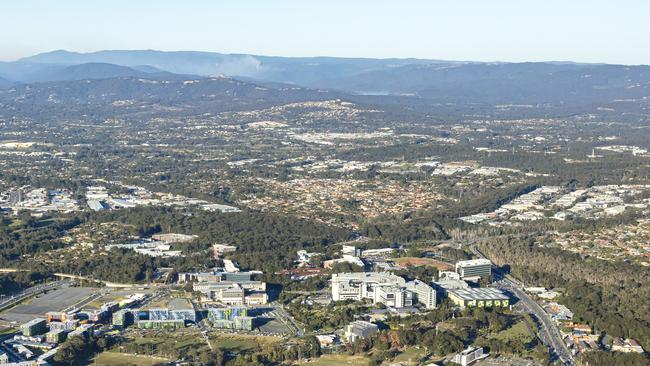Speeding fines leading cause of $170m SPER debt owed by 85,000 on Gold Coast
Tens of thousands of Gold Coasters are facing significant debts after making basic mistakes, with one issue in particular leaving people hundreds of dollars out of pocket. HERE’S HOW MUCH IT COULD COST YOU

Gold Coast
Don't miss out on the headlines from Gold Coast. Followed categories will be added to My News.
THE state’s debt collector is chasing 85,000 Gold Coasters for an incredible $170 million in unpaid fines – with speeding tickets the most common cause.
An analysis of the State Penalties Enforcement Registry (SPER) reveals Glitter Strip suburbs rate among Queensland’s worst, with one postcode owing $20 million alone at the end of June.
COAST’S STUNNING DRIVING STATS
The most dangerous Coast intersection
The Coast suburb with the most crash claims
The Coast's worst suburbs for hooning
Overall, 85,355 people owe each for 599,909 debts. The $170 million outstanding – or $2000 on average each – is $36 million more than five years ago and up $3.7 million in 18 months. However, the number of people owing debts has decreased in that time.

The latest figures reveal suburbs within the postcode 4207, which includes Beenleigh, Logan Village, and Yatala, have racked up a $28.5 million debt, the highest in the state.
In the postcode 4215, which includes Labrador and Southport, 9991 people owed $20,13 million. SPER is tasked with collecting fines imposed by the courts, state government, local governments and other agencies such as toll companies.
At the end of May, Queenslanders owed just shy of $1.3 billion. The Queensland treasury website says SPER collected $269.4 million as at June 30, 2020 for the 2019–20 financial year.
The most common fines referred to SPER relate to speeding, tolling, court debts, vehicle offences, parking and other driving offences.
Getting caught speeding coast motorists a minimum of $177, rising to $1245 for the most serious offences.

LNP Deputy Leader and Shadow Treasurer Tim Mander said the State Government had “dropped the ball on debt recovery”.
“The Gold Coast’s SPER bill is spiralling out of control,” he said.
“Labor has wasted an eye-watering $76 million of Queensland taxpayers’ money on this failed project.
“This staggering amount of money could have been used on congestion-busting projects, increasing the number of hospital beds, or investing in local schools.”
But a Treasury spokesman said the statewide rate of growth in the SPER debt pool had fallen from 8.7 per cent in 2013-14 to 1.7 per cent in the 12 months to June.
“The recent debt growth rate is below the Gold Coast’s population growth rate of an average of 2.4 per cent per year,” the spokesman said.
“It is worth noting that the data in the SPER postcode report is purely a snapshot in time and any comparisons over time will be affected by simple movements of people around the state through changing their address, payments made and new debts commenced.”

The spokesman said Queenslanders had every right to expect people to pay their fines and SPER played a critical role in that.
He said it had instigated a range of new initiatives in recent years which had been “effective in slowing the growth of the debt pool”.
“These include new online tools to make it easier for people to pay and stay on top of their debt, data enrichment to improve accuracy of debtor information, outbound calling to remind people of their debts, expanded options for people in hardship, and new targeted enforcement, through the vehicle immobilisation, seizure and sale program,” the spokesman said.
Last month, it was revealed SPER had stopped issuing collection notices for any new fines dished out since mid-March as part of its response to coronavirus.
Originally published as Speeding fines leading cause of $170m SPER debt owed by 85,000 on Gold Coast
